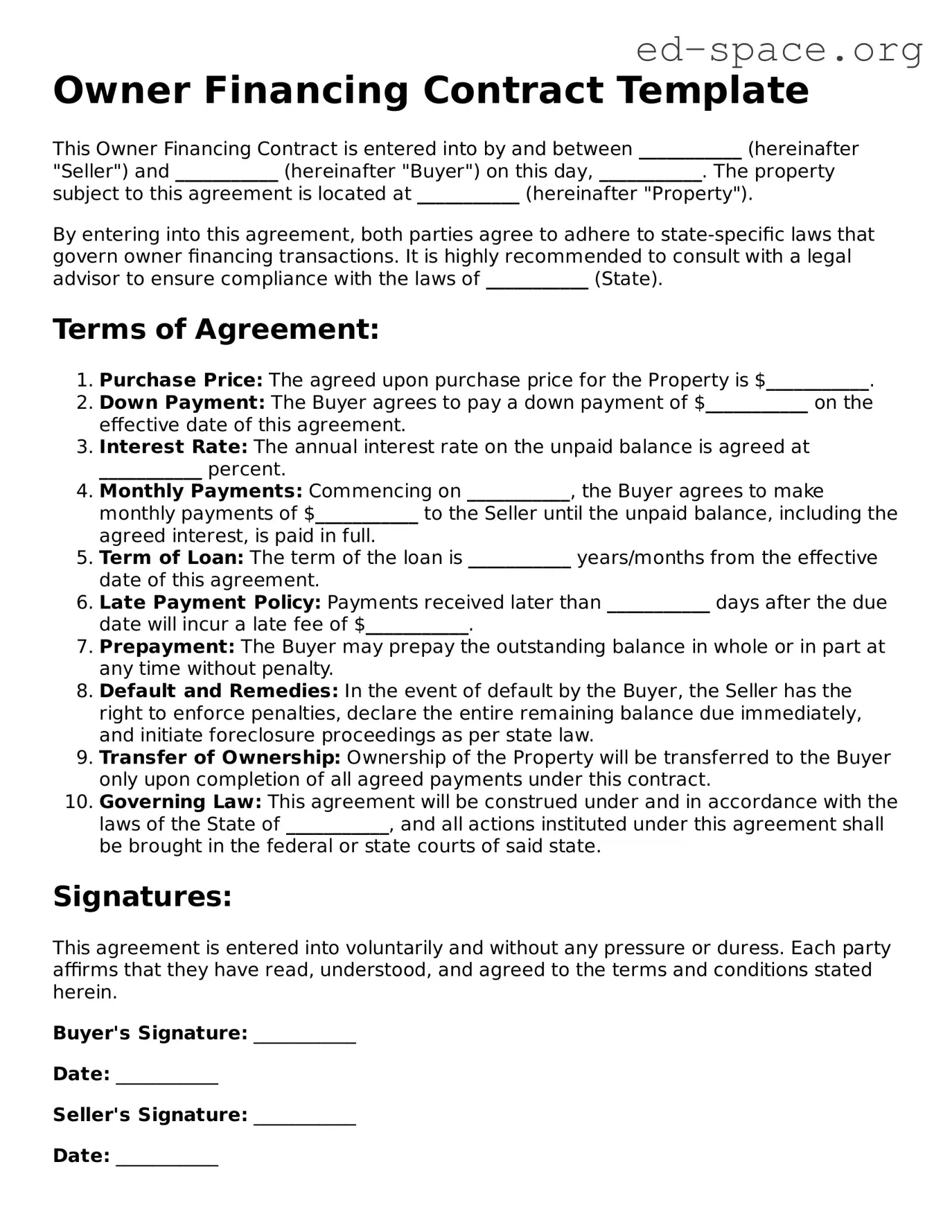What is an Owner Financing Contract?
An Owner Financing Contract is a legally binding agreement where the seller of a property provides the financing to the buyer for the purchase. This type of contract eliminates the need for the buyer to obtain financing through a traditional lender, such as a bank. Instead, the buyer makes payments directly to the seller under the terms agreed upon in the contract.
How does owner financing benefit the buyer?
Owner financing can offer several benefits to the buyer, including easier qualification for financing, potentially lower closing costs, and the ability to negotiate the down payment, interest rate, and repayment schedule directly with the seller. This can be particularly beneficial for buyers who may not qualify for traditional financing due to credit issues or self-employment.
What are the advantages for sellers offering owner financing?
Sellers offering owner financing can benefit from a wider pool of potential buyers, potentially quicker sale of the property, and the ability to earn interest on the financed amount. It also allows sellers to spread out the tax liability on any capital gains from the sale over the term of the loan.
What should be included in an Owner Financing Contract?
An Owner Financing Contract should clearly spell out the terms of the sale, including the purchase price, down payment, interest rate, repayment schedule, and any other conditions related to the financing. It should also include details of the property being sold, information about both the buyer and seller, and any default remedies available to the seller if the buyer fails to make payments.
Are there any risks associated with owner financing?
Yes, there are risks for both the buyer and the seller. Buyers risk losing their investment if they default on the loan and the property goes into foreclosure. Sellers face the risk of the buyer defaulting on the loan, which could result in the need to initiate foreclosure proceedings to regain possession of the property. Sellers may also have to deal with the hassle and expense of managing the loan.
Can interest rates for an Owner Financing Contract be negotiated?
Yes, one of the key benefits of owner financing is that the interest rate can be negotiated directly between the buyer and seller. This provides flexibility and can be adjusted based on the agreed terms, such as the down payment amount and the duration of the loan.
How is an Owner Financing Contract enforced?
Like any contract, an Owner Financing Contract is enforced through the legal system. If either party fails to meet their obligations under the contract, the other party may pursue legal remedies. For instance, if the buyer fails to make payments, the seller may seek foreclosure on the property to recover their investment.
Can either party change the terms of the Owner Financing Contract after it's signed?
Once an Owner Financing Contract is signed, the terms of the contract are typically binding on both parties. However, the contract terms can be modified if both the buyer and seller agree to the changes in writing.
What happens if the buyer wants to sell the property before paying off the Owner Financing Contract?
If the buyer wants to sell the property before the loan is paid in full, they generally need to pay off the remaining balance of the owner-financed loan at the time of sale. This can be accomplished through obtaining financing from another lender or through the sale proceeds. The specific rights and obligations would be outlined in the original Owner Financing Contract.
Is a down payment required in an Owner Financing Contract?
While it's common for a down payment to be required in an Owner Financing Contract, it's not always necessary. The amount of the down payment, if any, is one of the negotiable terms between the buyer and seller. Requiring a down payment can provide the seller with immediate cash and reduce the risk of default, but flexibility in this area can make the property more accessible to potential buyers.
